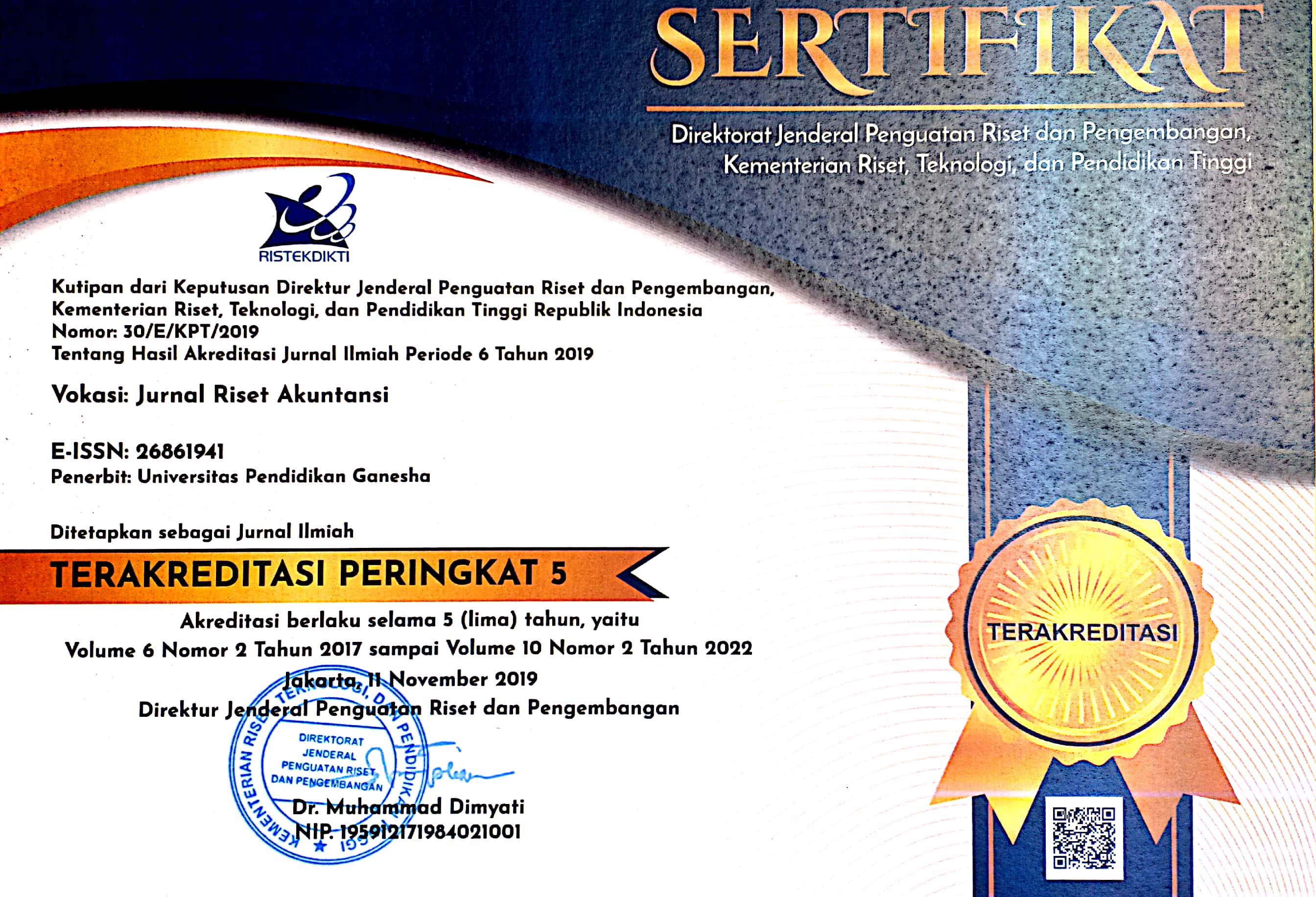Pengaruh Auditor Client Tenure, Debt Default, Reputasi Auditor, Ukuran Klien Dan Kondisi Keuangan Terhadap Kualitas Audit Melalui Opini Audit Going Concern
DOI:
https://doi.org/10.23887/vjra.v2i1.1066Abstract
ABSTRAK
Penelitian ini bertujuan untuk menganalisis pengaruh auditor client tenure, debt default, reputasi auditor, ukuran klien dan kondisi keuangan terhadap kualitas audit melalui opini going concern. Populasi yang digunakan dalam penelitian ini adalah seluruh perusahaan manufaktur yang terdaftar di BEI pada periode tahun 2008-2011. Model yang digunakan untuk menguji hipotesis adalah menggunakan Ordinal Logistic Regression (PLUM). Berdasarkan hasil pengujian hipotesis, terbukti bahwa auditor client tenure, ukuran klien, reputasi auditor dan kondisi keuangan tidak berhubungan dengan opini audit going concern, sedangkan debt default berhubungan dengan opini audit going concern. Peneliti memberikan beberapa saran atas keterbatasan yang ditemui selama penelitian dilakukan, yaitu sebagai berikut : (1) Pada penelitian selanjutnya, bisa menambah tahun pengamatan penelitian dan memasukkan variabel lain seperti : strategic action perusahaan, keberadaan komisaris independen dan kepemilikan perusahaan (2) Penelitian selanjutnya dapat meneliti sampel perusahaan dari dua jenis industri atau lebih, sehingga hasil temuan yang didapat bisa mengeneralisir seluruh perusahaan go public di BEI. (3) Menggunakan model kondisi keuangan lainnya, seperti The Zmijeski Model (1984) atau The Springate Model (1978).
Kata Kunci : auditor client tenure, debt default, reputasi auditor, ukuran klien, kondisi keuangan dan opini audit going concern.
ABSTRACT
This study aims at analyzing the impact of client tenure auditor, debt default, auditor reputation, client size and financial condition towards auditing quality through auditing going concern opinion. The population of this study was all of the manufacturing companies registered in BEI during the period of 2008 – 2011. The model used to test the hypothesis of the study was Ordinal Logistic Regression (PLUM). Based on the result of the hypothewsis testing, it is proved that client tenure auditor, client size, auditor reputation, and financial condition were not related to auditing going concern opinion. The following are some suggestions with regard to shortcomings during the study: (1) For future researches, it is of necessity to add the year of observation other variables like strategic action of the companies, the existence of independent comissory, and company ownership, (2) Future researches can also study the samples of company from two industrie or more, so that the finding of the study generalize all companies that go publis in BEI, (3) Other studies can also make use of other financial condition models, such as: The Zmijeski Model (1984) or Springate Model (1978).
Key Words: client tenure auditor, debt default, auditor reputation, client size, financial condition, dan opini audit going concern auditing opinion.









